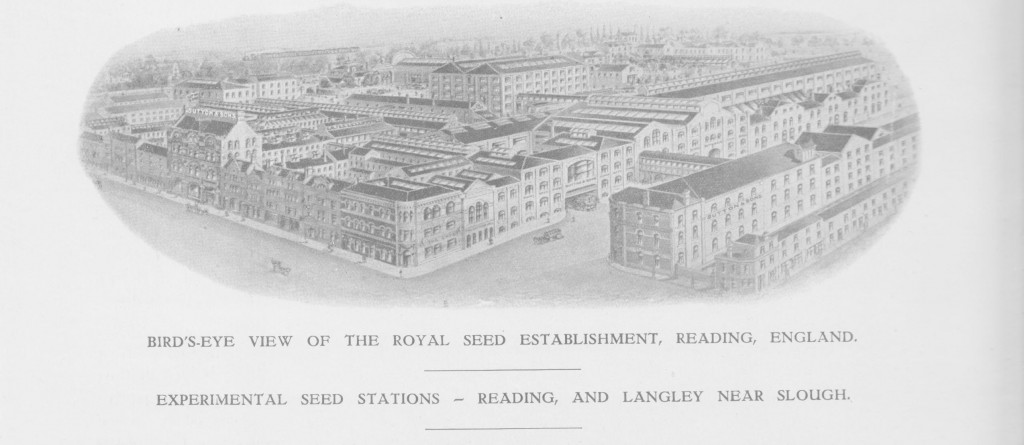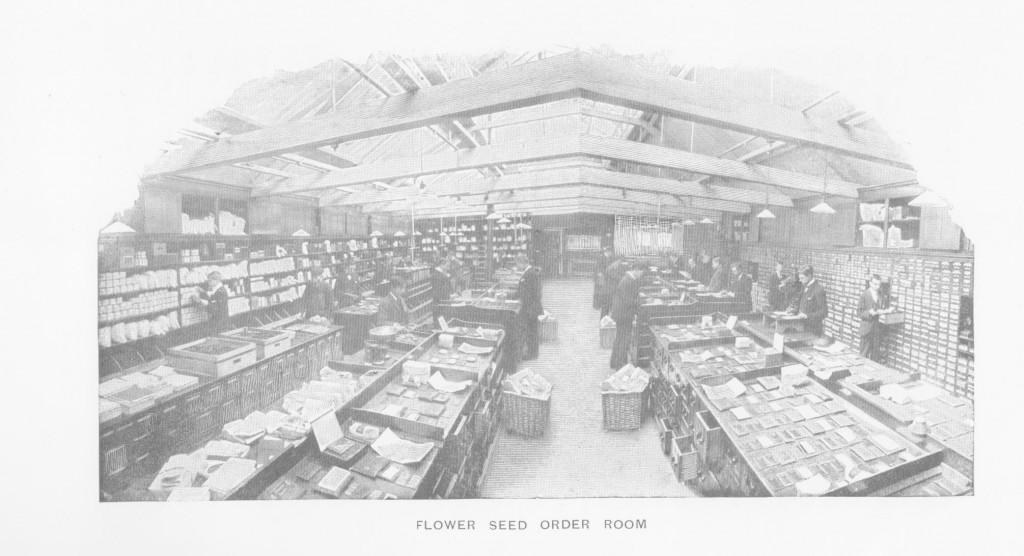In the early stages of the war there was no shortage of men enlisting and by December 1914 Suttons had 75 men in the Forces. In early 1915 a staff notice stated:
“In order to encourage recruiting, it is still our intention to keep situations open for those who enlist. We wish however to make it clearly understood that this does not apply in any case where a recruit makes a false return as to his age.”
In December 1915 the seed industry was added to the list of reserved occupations however where possible employees continued to enlist and by 1918 the number of Suttons men serving at the front or in the UK had increased to 200.
Work at Suttons continued. The hours of operation were changed to make maximum use of daylight hours. Blinds were put up at windows and roof tiles were painted to make them less visible during Zeppelin raids.
A staff notice stated “In the case of all departments working after tea, blinds and curtains, etc. must be drawn and screens put up before resumption of work and anyone causing light to appear through an open window, or by any other means, will be held personally liable for any penalty imposed by the authorities.”

The increased need to produce food led to a massive increase in orders. This, combined with staff shortages due to men having enlisted, led to backlogs in order processing. Changes were made to internal procedures and on occasions staff worked through the night. All in an attempt to clear the backlog.
The following figures show the number of outstanding orders at the start of each year and clearly show the huge increase in demand for seed:
1915 700
1916 2000
1917 9000
1918 22000
1919 7000
1920 11000
Increased efficiencies – many of which came from the staff themselves through the introduction of a Suggestions Box – meant that from processing an average of 450 orders a day at the start of the war by 1917 this had increased to 750 orders a day.
Last Updated on March 16, 2023 by Suttons Horticultural Team


